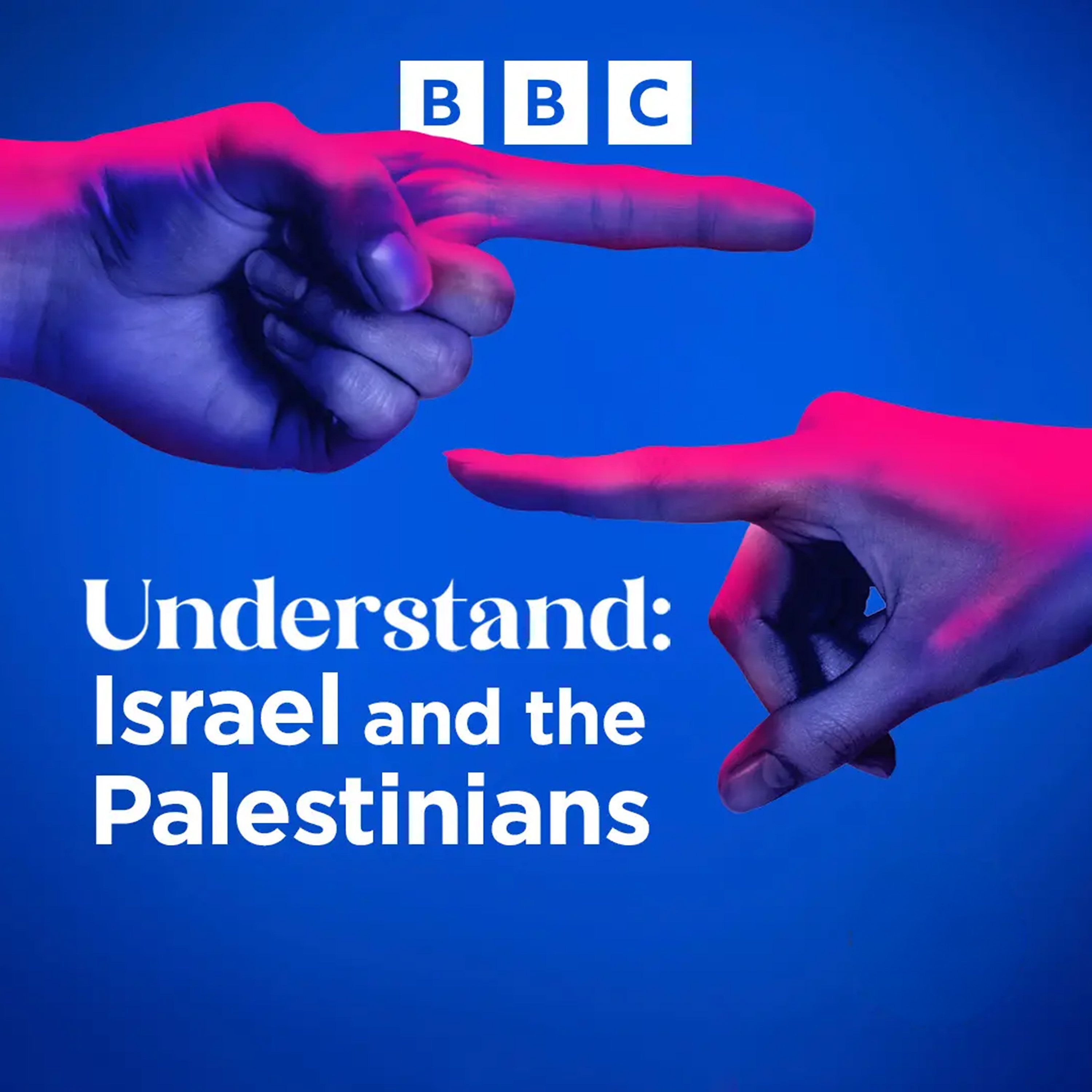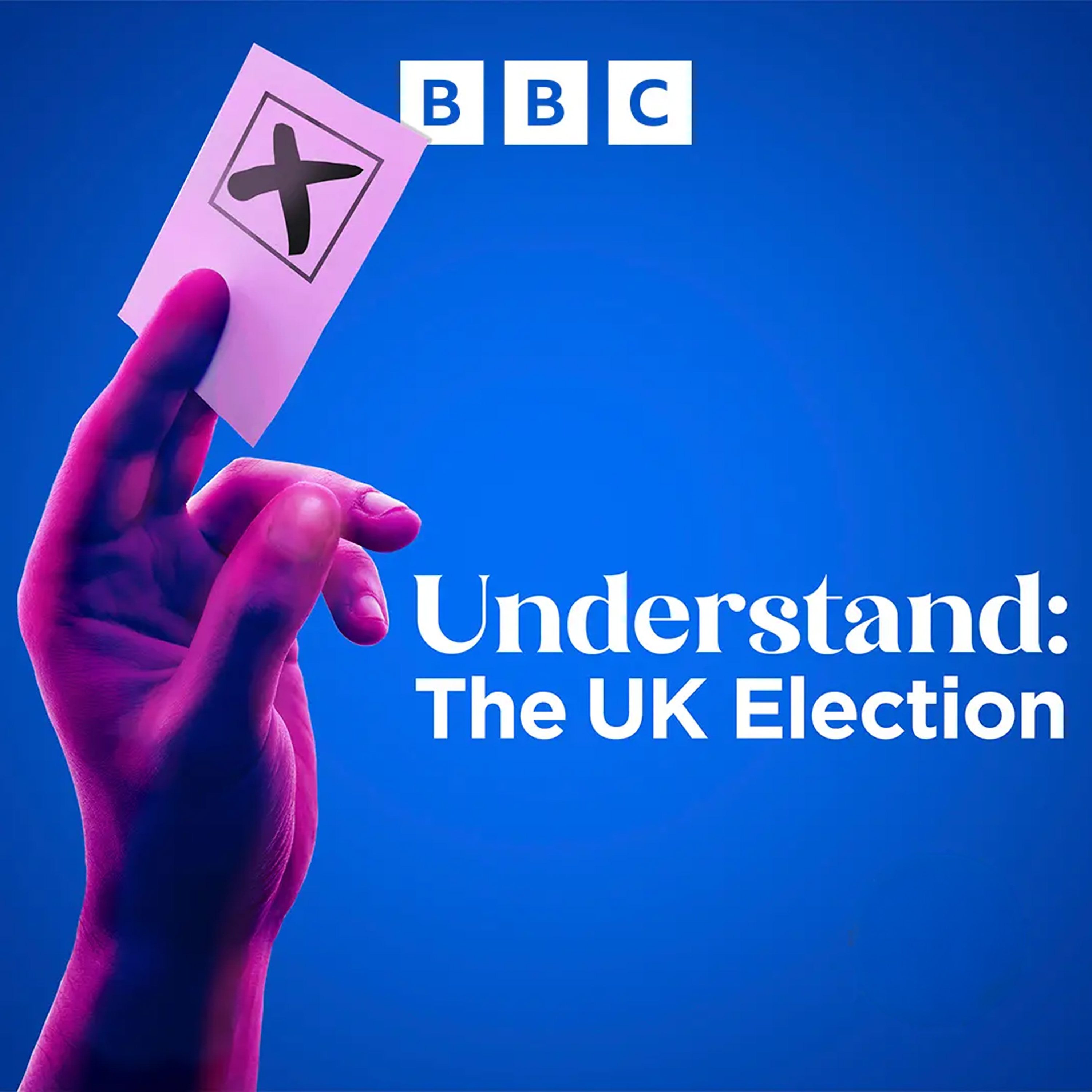Israel and the Palestinians: 3. Hamas
What is Hamas, what do they stand for and what do they want now? As part of our series explaining the context of today’s conflict, Katya Adler and guests take a closer look at the group responsible for orchestrating the recent attacks on Israel. They are regarded as a terrorist organisation by Israel, the US and the UK, but how are they seen by Palestinians? As well as being a militant group and an Islamist movement, they are in charge of governing more than two million people in the Gaza Strip. How did they come into being and what are they hoping to achieve?
Press play and read along
Transcript
Speaker 1 This BBC podcast is supported by ads outside the UK.
Speaker 1
My phone just buzzed. Another data breach alert.
It was a reminder that VPNs and encrypted apps can't fix what's broken at the network level. That's where CAPE comes in.
Speaker 1 Cape is a secure mobile carrier built with privacy as its foundation. It doesn't collect names, addresses, or personal data, so it can't sell what it never stores.
Speaker 1
Use the code CAPE33 to get the first month of premium nationwide service for just $30 a month and 33% off the first six months. Go to CAPE.co.
Privacy starts at the source.
Speaker 1
From unsolved mysteries to unexplained phenomena, from comedy goal to relationship fails, Amazon Music's got the most ad-free top podcasts. Included with Prime.
Download the Amazon Music app today.
Speaker 2 BBC Sounds, Music, Radio Podcasts.
Speaker 2 Hello and welcome to Understand Israel and the Palestinians. I'm Katy Adler and I lived and worked in the Middle East for many years.
Speaker 2 Amongst the noise and trauma of the conflict, we're now taking a step back to look at the history and to provide context to help you get to grips with the complexities of what's going on today.
Speaker 2 In the last two episodes, we looked at the Palestinians and Israel. Today, we take a closer look at Hamas, responsible for orchestrating the recent attacks on Israel.
Speaker 2 In Arabic, Hamas is an acronym for Islamic Resistance Movement. The group governs the Palestinian territory of Gaza.
Speaker 2 And like so much about the Israeli-Palestinian conflict, Hamas is a polarizing issue, viewed differently and passionately depending on whom you speak to.
Speaker 2
Israel, the UK, US and many other Western governments label it a terrorist group. But what about Palestinians? Or the wider Middle East? Well, there's no quick-easy answer.
That's why we're here.
Speaker 2 Joining me to help is Hugh Lovett, a senior policy fellow with the Middle East programme at the European Council on Foreign Relations.
Speaker 2 It's a think tank that carries out research on European foreign policy.
Speaker 1 Hi, Katya.
Speaker 2 Hugh, Hamas wears a lot of hats, doesn't it? It is a militant group, but it's also a political party and an Islamist movement. Let's first look, though, at its military capabilities.
Speaker 2
Hamas has attacked Israel before with rockets. It's carried out suicide bombings in Israel.
But this latest assault was unprecedented for Hamas in tactics and scale.
Speaker 1 Its military capabilities have been shown to be actually extremely potent.
Speaker 1 That's perhaps not necessarily a surprise given that Hamas has been involved in a number of conflicts with Israel over the past decade, but certainly the extent of the operation that it was able to carry out, the planning, the detailed planning, that I think has taken quite a few people by surprise.
Speaker 1 But after all, we do need to remember that it is definitely the largest and most potent Palestinian armed group, and it does have significant resources and regional support.
Speaker 2 We will get to some of those points a bit later in the programme. And we had a look at Gaza in our episodes on the Palestinians.
Speaker 2
Gaza is strictly controlled by Israel at one end and Egypt at the other. It's air, it's seas are controlled by Israel.
So how do these sophisticated weapons, increasingly sophisticated ones, get in?
Speaker 1 The main channel for smuggling in weapons is via the Egyptian-Gaza border. So we know that there are a number of tunnels that have been dug under that that have allowed Hamas to bring in weapons.
Speaker 1 And some of these weapons are also weapons that Hamas has created, has built itself in Gaza.
Speaker 1 And this is particularly the case with its rockets, which have become increasingly effective and increasingly potent as each war unfolds.
Speaker 2 Aaron Powell, but again, Hugh, Hamas, yes, it's a military group, but it's also political. In Gaza, it's running healthcare, education, rubbish collection.
Speaker 1 Indeed, and that is one of the complexities to understanding Hamas. Hamas is an armed group, as we've been talking about, but it is also a political group.
Speaker 1 It is also a party of de facto governance in Gaza. And it is also a group that provides
Speaker 1 I suppose you could call it charity services so it has charity organizations in Gaza and in the West Bank that also provide support for poor families and vulnerable families so that's helped it consolidate its position amongst Palestinians amongst the Palestinian public and also build out its political and social influence and making it today one of the two largest Palestinian political parties so even though European governance makes it a terrorist group and try to isolate and sanction it, it is an integral part of Palestinian society and politics and will continue to be so regardless of what happens in Gaza.
Speaker 2 How much support is there for Hamas amongst Palestinians?
Speaker 1 If we look at support for Hamas within Gaza, as of September, so before this escalation, Hamas was polling at about 44%.
Speaker 1 So what that shows you is, yes, there is a degree, a large degree of support for Hamas, but nor are they fanatically pro-Hamas.
Speaker 1 And speaking to many Gazans and Palestinians, many of them would be quite happy to see the end of Hamas.
Speaker 1 But that doesn't mean that they, of course, support its eradication by Israel and the large destruction and death toll that would come with this.
Speaker 2 have often resulted in a very high death toll of Palestinian civilians, including many children. Does that bring solidarity or division with regards to Hamas?
Speaker 1 It brings suffering, first of all.
Speaker 1 But if one was to ask, would these actions by Israel turn the population of Gaza against Hamas, which I've heard Israeli officials say, or perhaps hope for, the answer is categorically no.
Speaker 1 That for Palestinians in Gaza who are experiencing this, Israeli attacks do not seem to discriminate between Hamas and themselves in terms of how they are not just killing Hamas members and not just killing Palestinian civilians, but also levelling entire buildings and neighborhoods.
Speaker 1 That is how Palestinians in Gaza see it, and those are the images that we are seeing.
Speaker 1 So, what this will do is it will strengthen Palestinian anger against Israel, and not just Palestinian anger within Gaza, but also in the West Bank and East Jerusalem, and it will also stoke Arab public anger against Israel.
Speaker 2 What about religion and the role it plays for Hamas?
Speaker 1
Religion is central to Hamas. After all, Hamas does describe itself as an Islamist party.
You could perhaps say it's a very conservative view of social and political questions.
Speaker 1 But Hamas is also a Palestinian nationalist party. It is deeply and firmly rooted in Palestinian nationalism and the Palestinian cause.
Speaker 1 And it doesn't have aspirations to expand Islam or anything like that. So that I think is very important to understand in terms of then trying to understand its the reasons for its actions.
Speaker 2
Let's just have a look now at what Hamas actually wants. Their founding charter calls for the annihilation of Israel.
What is Hamas's end goal?
Speaker 1 This is now actually a really difficult question to answer, because I think what's happening now is a profound strategic change in how Hamas is relating to Israel and the broader conflict.
Speaker 1 You quite rightly pointed out its founding charter, which was, let's be clear, anti-Semitic and which did call for Israel's destruction. However, it has slowly moderated its platform.
Speaker 1 And we have seen, even as Hamas engages in violence, we've also seen it engage in political tracks, whether that was elections, whether that was also its efforts to engage with Europe and the US.
Speaker 1 So what's happened here with this escalation now, it's been clearly driven by the armed wing. It likely, very likely, took the political leadership by surprise.
Speaker 1 From what I understand, they probably didn't know about it until quite recently.
Speaker 1 And if I could add one last point about why it's so difficult now to answer what's going to happen, because such is the sheer scale and horror of what Hamas has done, it seems to have perhaps deliberately burnt the political tracks that it had previously engaged in.
Speaker 1 But it will also complicate the task of de-escalation because we're not clear what does Hamas want beyond liberating Palestine, as they put it, or fighting to the death.
Speaker 2 Hugh, thank you so much. I just want to bring in Dr.
Speaker 2 Jennifer Jeffries of Georgetown University in Washington, D.C., who's written a book called Hamas Terrorism, Governance and Its Future in Middle East Politics.
Speaker 2 Thank you so much for joining us. Could we just go back a few steps now and have a look at how Hamas came into being?
Speaker 3 Yeah, absolutely. So Hamas is an organization that emerged in the Palestinian territories in the late 1980s.
Speaker 3 They were an offshoot of sort of the mother of all Islamic opposition groups, which is the Egyptian Muslim Brotherhood. And so when they emerged in the 1980s, there was,
Speaker 3 we kind of have to keep in mind that there was really nothing approaching a Palestinian state or a Palestinian government.
Speaker 3 There was an organization that called itself the Palestinian Liberation Organization, which marketed itself as a unifying voice for Palestinians.
Speaker 3 The PLO, as we call them, committed numerous violent attacks against Israelis and others in an effort to bring about their own vision for a Palestinian state.
Speaker 3 And when the PLO then decided to go legit by engaging in peace talks with Israel in the early 90s and through the 90s, Hamas centered its reputation as the loyal resistor to these, as they would say, heretical efforts.
Speaker 2 So you've painted a very clear picture there of Hamas kind of jockeying for position with the PLO and then the Palestinian Authority under Fatah.
Speaker 2 But what was it that appealed most to Palestinians? There was an election held. That's very rare in the Palestinian territories for many reasons.
Speaker 2 Back in 2006, Hamas won it across the board in the West Bank and in Gaza. So was it its resistance to Israel? Was it the reputation then for not being corrupt or being more organized?
Speaker 2 Was it the fact that they were in favor of a more conservative society following the rules of Islam in everyday life?
Speaker 3 And the answer to that is yes. It was in many ways all of those things, because all of those things are such a key element of how Hamas defines itself.
Speaker 3 In contrast to Fatah, which at that time really was viewed and continues to be viewed as a corrupt and stagnant organization that seems, in the eyes of some Palestinians, as more focused on having, you know, sort of gaining power for its own sake, as opposed to pursuing the Palestinian cause, Hamas was this very staunch and continued resister.
Speaker 3 They also continued their charitable efforts and did that through this lens of Islamic commitment that was very appealing to many Palestinians and more appealing than most world governments realized, which is why so many of them were caught off guard by Hamas's emergence as the winning party in that election cycle.
Speaker 2
As it resulted, Hamas took power in Gaza and Fatah retained control over the Palestinian authority in the West Bank. That's how it still is today.
Jennifer, thank you so much for joining us.
Speaker 2 Hugh Lovett, can you tell us who are the key figures in Hamas?
Speaker 1 The political leadership is known as the Politburo.
Speaker 1
Their leadership is spread between Gaza, the West Bank, and the diaspora. So that would include Lebanon.
Some of its leadership was hosted and is hosted in Doha.
Speaker 1 Other leaders have been in Turkey, etc., etc. Now, in terms of who is who,
Speaker 1 Hamas is led at the moment by Ismail Hani, so he is the head of the political bureau, Politburo.
Speaker 1 And we can expect this leadership to be most likely the target of Israeli assassination attempts going forward. Now, the military wing is led by Mohammed Dayf.
Speaker 1 Not much is known about him apart from the fact that he is their veteran leader.
Speaker 1 He survived a number of assassination attempts against him, which have reportedly left him badly injured, perhaps even half paralyzed. So that's kind of the who's who.
Speaker 1 You can also imagine that there's some jockeying amongst these leaders, and that's probably another dynamic that we need to take into account when we're trying to understand what Hamas is doing now and what it may do in the future.
Speaker 2 As well as looking at the vying leaderships within Hamas, it's important, isn't it, to have a look at who Hamas's allies are, be it where some of the leadership are, QASA or Turkey, and therefore those countries are seen as possible intermediaries if there is to be any work towards a ceasefire now.
Speaker 2 But also, we hear a lot about Iran.
Speaker 1 Now, we need to be very clear that, or at least in my assessment, and I haven't heard otherwise, this is what is happening, what is unfolding is first and foremost a decision, a calculation by Hamas for its own interests.
Speaker 1 Nevertheless, it is clear that it does have a tight relationship with Iran, both in terms of receiving Iranian funding and support, but also in terms of coordination.
Speaker 1 And we know this because this is also, we've seen this publicly. So, over the last months, we've seen meetings between senior leaders of Hamas with leaders from Iran.
Speaker 2 Thank you, Hugh.
Speaker 2 And we'll be looking more closely at the role of Iran, Hezbollah, and other regional players in our next episode. Hope you can join me then.
Speaker 4 Hello, I'm Tom Bateman, a BBC correspondent based here in Jerusalem.
Speaker 4 Now, as you've been hearing, this current conflict does have deep roots. And there's one period in particular that was foundational.
Speaker 5 It was a kind of bauge.
Speaker 1 There's one beautiful quote where one British official said, I loathe them all. They are a beastly race, and he means Jews and Palestinians.
Speaker 2 There was a general perception in the the Syrian population that the French were arrogant, brutal conquerors.
Speaker 1 This was the basis of everything that went wrong after that.
Speaker 4 So much happened in the three decades after the First World War when Britain and France were handed so-called mandates to govern this region that I've made a series about it.
Speaker 1
There was a very strong negative reaction among the great majority of the population. It touched every fibre of my being.
I still feel it today.
Speaker 4 I've been speaking to people who lived through that critical period that shaped the modern Middle East and some of the historians who explain it best. The mandates is available now on BBC Sounds.
Speaker 7 Dreaming of buying your first car or a new home? Knowing your FICO score is the first step in making it real. With My FICO, you can check your score for free and it won't hurt your credit.
Speaker 7 You'll get your FICO score, full credit reports, and real-time alerts all in one simple app. Your credit score is more than just numbers.
Speaker 7 It's the key to building the future you've been working toward. Visit myfico.com slash free or download the MyFICO app and take the mystery out of your FICO score.
Speaker 5 Coach, the energy out there felt different. What changed for the team today?
Speaker 1
It was the new game Day Scratchers from the California Lottery. Play is everything.
Those games sent the team's energy through the roof.
Speaker 5 Are you saying it was the off-field play that made the difference on the field?
Speaker 1
Hey, a little play makes your day, and today it made the game. That's all for now.
Coach, one more question.
Speaker 6 Play the new Los Angeles Chargers, San Francisco 49ers, and Los Angeles Rams scratchers from the California Lottery. A little play can make your day.
Speaker 1 Please play responsibly, must be 18 years or older to purchase, play, or claim.


